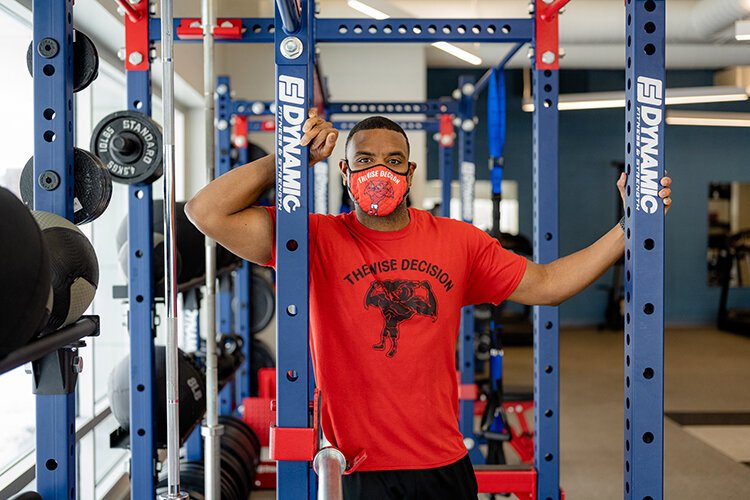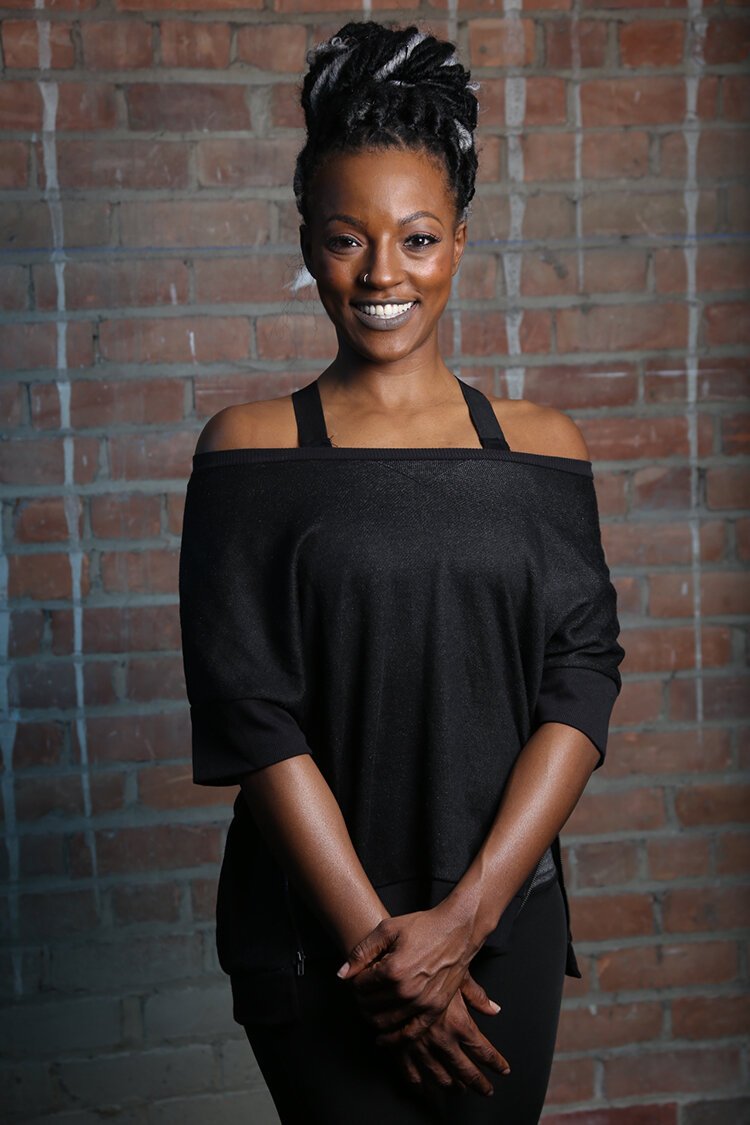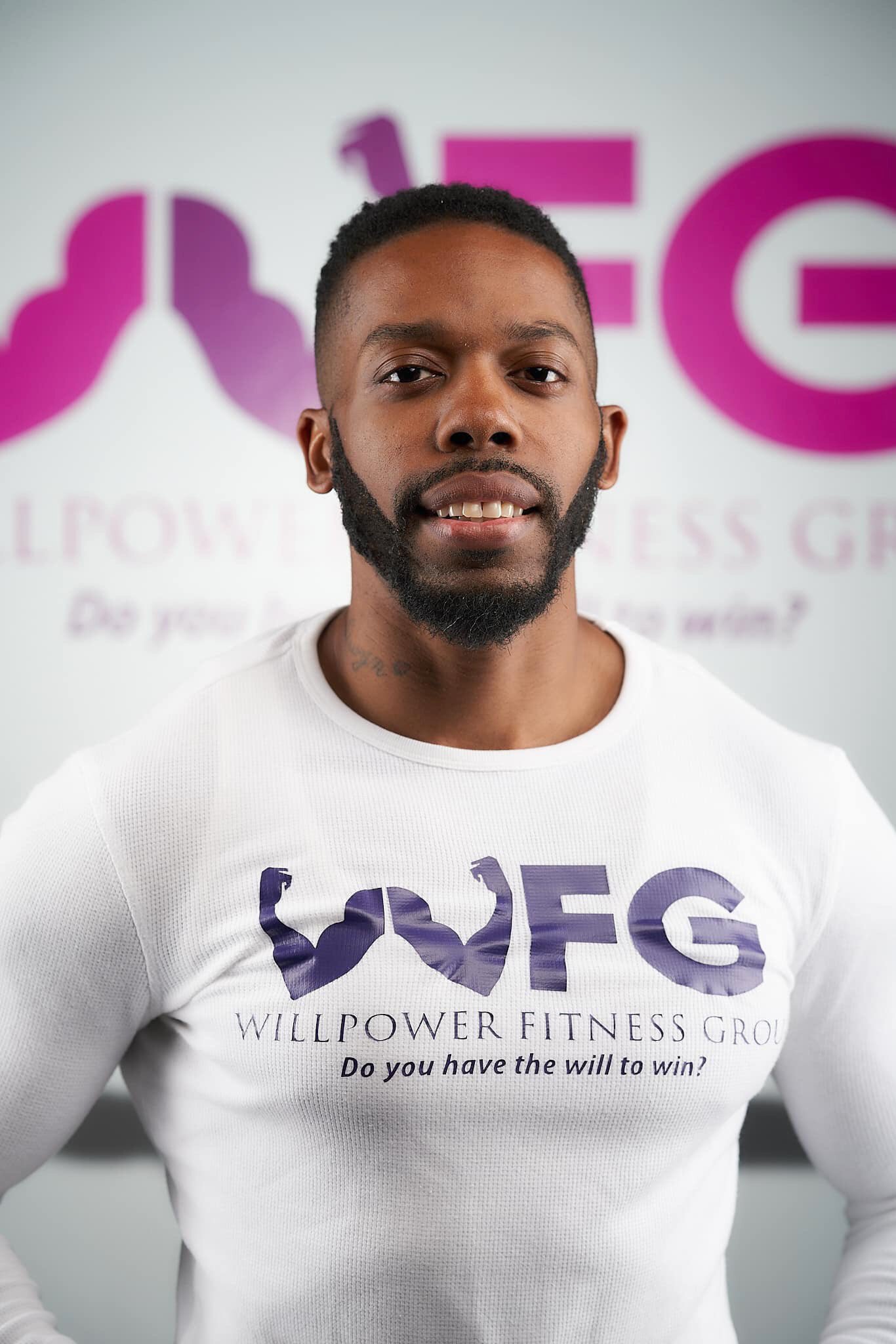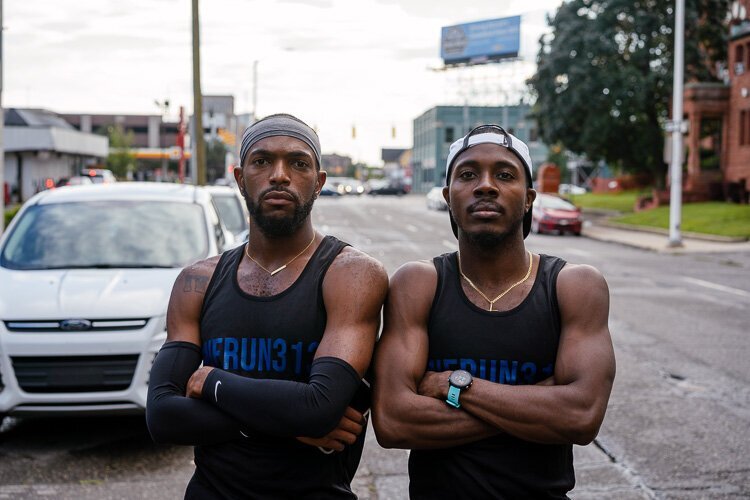Fitness during a pandemic winter: Detroit experts share tips on getting and staying on track
Accountability buddies, writing down your goals, and making time for gratitude are some tips from the pros.

On Jan. 1, it’s a common tradition for many with good intentions and lofty goals to eat healthier and work out more. By February, research has shown that those resolutions have fallen by the wayside a whopping 80%.
“February is a time when people are coming off the holiday and most people … have that goal to get in shape in January. But come February, people have forgotten about those goals. But there’s still an opportunity to reach those goals,” says Sterling Wise of The Wise Decision.
The global pandemic has upended our lives, not just in terms of physical fitness but also mental health.
“COVID is affecting us in so many ways that we probably won’t fully understand until years down the road,” says William McCray, founder of WillPower Fitness Group in Clawson. “[Everything like] depression and anxiety, the economy and people losing their jobs, and people having close ones die from this illness.”
Amina Daniels of Live Cycle Delight in West Village says with mostly everything being virtual these days, from working to social hours, “we really owe it to ourselves to get up and move. … Just keep going and make sure we’re prioritizing that time to tap in.”
[Related: How fitness entrepreneurs and gyms are staying afloat]
She adds exercise is “a gift to yourself. You are giving yourself a gift of better health. We don’t want to get out of this and have terrible knees and bad backs because we sat for two years.”

Here’s what Daniels, McCray, Wise, and other local fitness experts had to say about how to get back on track after an extremely trying year that has taken its toll.
Get your mind right
How do you get over the excuses and mental blocks?
“How you get over it is simply just to start,” says Lance Woods, co-founder of We Run 313. “People make it harder than what it what it seems. Or they may be thinking too much about, like how far it is. Once you start, you have a goal in mind, and you just keep putting one foot in front of the next. And that’s that. Nobody is going to make you do anything, you simply have to make a decision and do it. That’s how you get over the hump. And then once you do it, you just do your best to remain consistent.”
Wise says the first thing he tells clients is to get those goals out of their heads and commit them to paper by plotting out what they want to accomplish throughout the year and then breaking it up by month or quarter.
“Let’s say you had a goal to lose 60 pounds in 2021. Breaking that down to quarters or months or weeks is the best route to go. And keep that information in front of you. Reviewing those goals often is the best way to keep you motivated because it’s easy to have a goal today, tell yourself, this is what I’m going to do, and never think about that goal. But if you write that goal down, put it as a screensaver on your phone or your computer, you’re constantly looking at that.”
Those goals on paper will come in handy on a day when it’s cold and snowing.
“This morning I used the snow as an excuse. Last night, I saw the snow [and said to myself] I’m not going to work out. So I psyched myself out last night before the day even started. But despite that, this afternoon, I found an hour in my day and I said, I need to do it. And I went ahead and I worked out during that hour. So again, I think the best thing to do when the cold weather is here, and when anything keeps you down, focus on what is keeping you up, focus on why yet again, that you have those goals,” he says.
For McCray, it’s about finding your “why.” When he starts working with clients, the first thing they do is talk about why they are there and what they want to accomplish.
“Why is ultimately what gets a person to the end goal, what gets them the results that they seek,” he says. “I help people to cultivate that message, that why is something meaningful and something deep.”
He often shares his story of his fitness journey, which goes back to when he was about 12 or 13 years old when he asked for a set of weights. It helped him cope with his family problems, which left him feeling depressed. “Weightlifting became a therapy, it became my way of finding a healthy way to deal with the emotions that I was dealing with as a teenager.” His mother passed away when he was 16 and she was 34, and that “set me on my path, my quest to help others, find healthy ways of dealing with stressors and triggers.”

Circling back to the why serves as reminder, especially when it’s gloomy and snowy, or you’ve had a long day at work.
“That’s what’s going to get you off the couch and into the gym, or in your living room working out or your basement or wherever you choose to work out.”
Gear up
Wise, a self-admitted “former fat kid,” lost about 65 pounds in 2007. Wise, who has a degree in mechanical engineering and was working at a Fortune 500 company before he was laid off, started working at a local gym as a personal trainer. He decided to strike out on his own, turning his 2,000-square-foot house into a gym, and working with clients.
“I lost the weight without ever stepping foot in the gym, which is what allows me now to help my clients reach success without stepping to a gym. My goal is to show them how they can do these different exercises at home on their own.” (See the sidebar for an at-home workout.)
Find time for gratitude
Wise suggests identifying five things you are thankful for today. “Challenge yourself every day to find five things and write those five things down. If you’re feeling down, look at those five things and it will pick you up.”
Use the accountability buddy system
If you can’t motivate yourself, maybe a little healthy competition among friends might force you to spring into action.
“I think accountability partners are extremely helpful, especially now, while we’re feeling so isolated and a lot of people are living alone,” says Kerrie Trahan of Yoganic Flow. Many people are still working remotely and have lost the connections with casual acquaintances you would see from going to the gym or taking a yoga class. She suggests finding someone like an acquaintance who has a similar interest in yoga or meditation and asking them to be your accountability partner. “So you still feel some sort of sense of community, you still have these plans that you’re trying to stick to, and people that expect you to show up, in case you’re not showing up for yourself.”
Daniels agrees. “You definitely want somebody who’s going to help you stay active. Folks can layer on a challenge, [for example] the person who takes the most classes or who does the most cardio or weights [wins] and then each week it can become something different.”
She also suggests making a plan to schedule classes. As an instructor she will plot out her week.
“I would have a goal of which class that I could go to. So I will have three plan classes. And then I would have three backup classes. So my goal may be to make Monday night at 6:30. But the reality of it is things come up at work. And I may not be able to make it. So then if I missed my Monday class, then I had a backup class on Tuesday or Wednesday. So I definitely think scheduling your workouts makes a world of difference.”
Woods says finding your community, like the We Run 313 running group, is key. The group’s members follow them on Instagram for motivation, seeing Woods and his co-founder Joe Robinson training to qualify for the Boston Marathon, pressing on during the winter.

“Once you get with the community, you’re going to find people that you can run with, and you’re not alone. … And that’s going to motivate you intrinsically, to get out there and do it for yourself. Because at the end of the day, everything starts within, and if you lack the motivation, and you’re going to find motivation with the group.”




